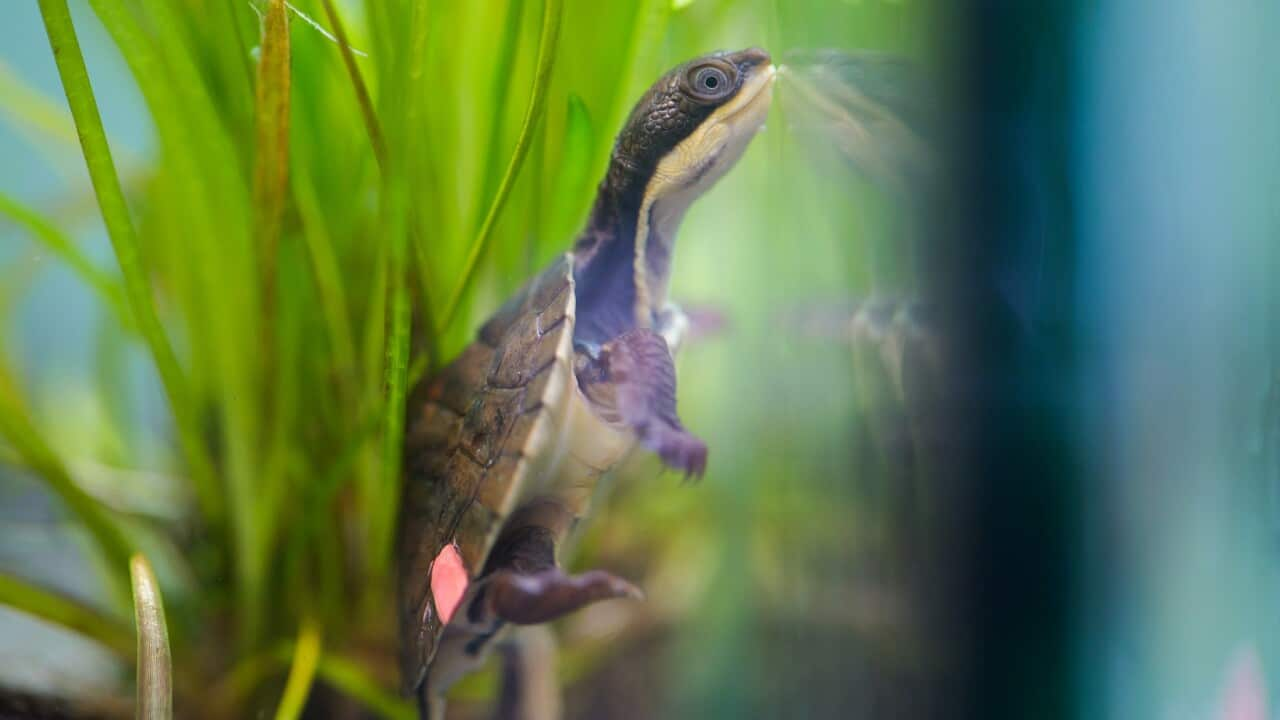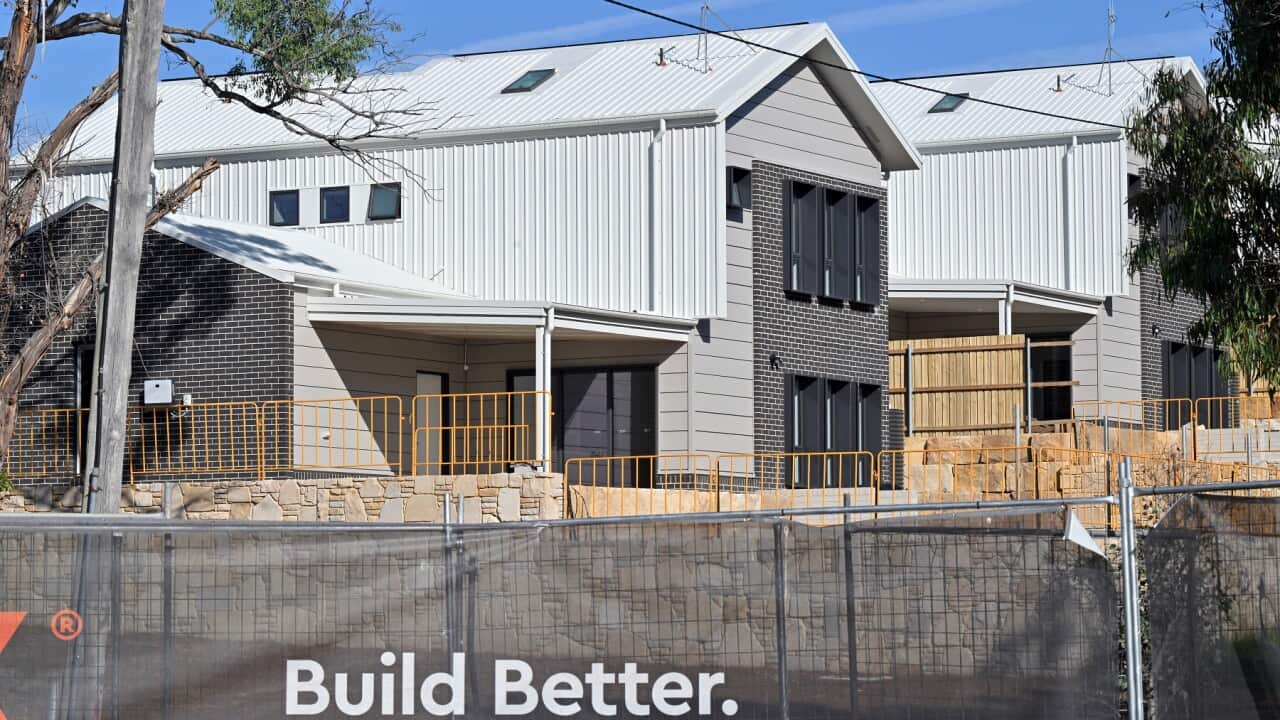Uma Tomarchio was first diagnosed with a rare form of leukaemia in May 2020.
The four-year-old was born in Australia and has spent her whole life in the country, however she does not qualify for Medicare because her parents are not permanent residents.
Highlights:
- A bone marrow transplant could save Uma's life but the cost is at least $300,000
- Uma's private health insurer does not cover the transplant and she is ineligible for Medicare
- Uma's parents are temporary skilled workers from Italy, and Uma's health conditions could make it harder for them to gain PR
Italians Giuseppe and Lucia Tomarchio are on temporary skilled work visas and came to Australia in 2016.
“In May 2020, our youngest daughter Uma started to feel weak. She didn’t feel like walking or playing, she was pale," Mr Tomarchio told SBS Italian.
Their GP said Uma needed a blood test and when the results came through, their entire reality changed.
“They told us it could be leukaemia and they sent us immediately to the Royal Children's Hospital,” Mr Tomarchio said.
In a moment, our life changed forever. We went from thinking: 'She may be low in iron’, and expecting Uma would be given supplements, to finding ourselves entering a hospital without knowing when we would come out.
Uma was diagnosed with acute lymphoblastic leukaemia, a very rare type of blood cancer but one of the most frequent among children.
Out of 307 cases each year in Australia, 200 are children.

Uma Tomarchio at the Royal Children's Hospital, Melbourne. Credit: Giuseppe Tomarchio
Within seven days, the tumour was in remission, but the total treatment protocol lasted for two years between relapses, therapies, and check-ups.
"Uma was in remission for about a year and we thought we were seeing the light at the end of the tunnel," Mr Tomarchio said.
For the past two years, Mr Tomarchio’s private health insurance has covered most of the costs associated with his daughter's chemotherapy at the Royal Children's Hospital.
'Devastating diagnosis': Cancer returns after remission
Uma’s treatment was supposed to finish in October, but in May this year, her family got some devastating news.
“I must admit that this time the shock was a lot worse than when we first heard Uma had leukaemia two years ago," Mr Tomarchio said.
For three days I could not think, I could not talk. I could not stop crying.
Uma's cancer had come back in a more aggressive form, known as acute myeloid leukaemia.
Her doctors believe the mutation was likely a rare side effect of her initial chemotherapy treatments.
They said Uma’s best chance of avoiding another relapse and beating the cancer for good rested with more chemotherapy and a bone marrow transplant, which would cost at least $300,000, and possibly up to $500,000 if there were complications.
An online fundraiser, set up by a family friend, has so far raised more than $377,000 towards Uma's transplant.
The fundraiser set up on GoFundMe has received 5,100 donations.
One of donors, who wants to be known only as Claudia, told SBS Italian that Uma’s story had touched her deeply, perhaps because she’s also a mum to a two-year-old.
“I decided to donate because if my family was in this situation, we would need the community’s support,” she said.

Giuseppe Tomarchio and Lucia Gardini with their daughters Solejai, 8, and Uma, 4. Credit: Giuseppe Tomarchio
Ubaldo Aglianò, president of the Italian organisation COMITES Victoria and Tasmania, told SBS Italian the organisation has put together “a taskforce” ready to start a larger fundraiser once Uma’s transplant details are confirmed.
He said the organisation was "deeply perplexed by the fact that a universally recognised fundamental right, such as health care" was dependent on a person's visa status in Australia.
Temporary residents still pay tax just as those who, as permanent residents, have unlimited access to the national health service.
Mr Tomarchio and his family are on a Temporary Skill Shortage visa (subclass 482).
Uma's ill health could jeopardise family's PR application: agent
Mr Tomarchio's current visa allows him to apply for permanent residency in 2025, but Uma’s health conditions could make the application process more challenging, according to Sydney-based immigration agent, Alessia Comandini.
"An applicant, and of course any dependants included in the application, such as wife, children etc., must pass a health test to be granted the visa they have applied for," explained Ms Comandini.
"The family, including Uma, could apply when eligible for the 186 TRT Employer Nomination, [permanent residency], but they will need to obtain a health waiver," she said.
Mr Tomarchio is a partner in a construction business that employs 20 Australians.
He says he's been paying tax just like every other Australian.
"I feel that I should be allowed to access free medical care here, even more than in Italy where I have not been paying taxes over the past years,” he said.

Uma playing with her sister Solejai. Credit: Giuseppe Tomarchio
SBS Italian contacted the Department for Health and Aged Care for comment.
A spokesperson urged the family to contact Services Australia about the matter which the family did in mid-August. They are still waiting on a further response.
Uma was admitted to the hospital on August 8, 2022, and, after a promising round of chemotherapy, she is looking forward to spending a few days at home before the transplant to play with her eight-year-old sister, Solejai, Mr Tomarchio said.
“She's never lost her enthusiasm; it is quite extraordinary. Last night, she was running around the hospital corridors dragging her drip-line hanger," he said.
“Every experience, even the toughest, can teach you something: I have learnt to accept, respect, and that kids are incredible teachers of honesty and resilience."
One day [Uma] told me: 'don't worry, dad, I am not going to leave you and mummy alone.
The medical team has scheduled the preparation treatments to start by mid-September for the transplant to happen on the 22nd.




